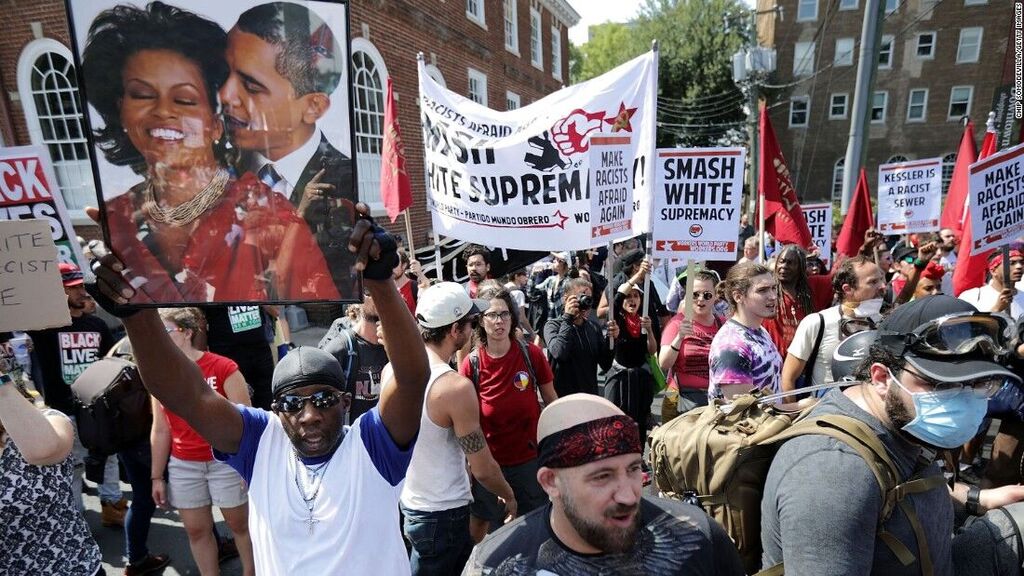
How the law seems to protect racist rhetoric
By Katie Czenczek, Staff Writer
I wasn’t terribly surprised when Neo-Nazis, white supremacists, and other racist groups came to protest the removal of a statue that commemorated a pro-slave dude, given the current political climate of our neighbours down south. However, my lack of initial shock turned into confusion that they were not only there legally, but were even protected by the police when counter-protesters showed up. Though I do not condone violence by counter-protesters, it seemed unreasonable to protect the initial protesters, whom many of which arrived at the protest heavily armed.
Canada—despite its racist history that has yet to be properly acknowledged—often appears to be publicly free of the unavoidable presence of groups like the KKK and National Vanguard when compared to the States. This is one of the fundamental differences between Canada and the US. USA protects hate speech while Canada does not publicly condone it. In other words, it seems as though Canadian racists are far less accepted by the community at large, while American racists are allowed to spew their hate loud and proud. The events that took place in Charlottesville beg the question: To what extent should hate speech be protected under the guise of freedom of speech? Is it more dangerous to allow people to rally together and target a group of people, or is it more dangerous to allow the government to dictate what “hate speech” is, and who can say it?
Personally, I can see valid arguments for both sides of the free speech debate. By not allowing hate speech to be promoted publicly, it weakens a hate group’s ability to gain traction and thus renders them less likely to rise up and start slaughtering the people they hate. The differentiation between hate speech from freedom of speech makes it clear that hate speech and the violence that follows it has no place in the public sphere. That hate speech in fact does nothing to contribute to society and is thus unacceptable to preach in public. This probably arose out of fear that there would be another Nazi Germany—with a charismatic leader who only initially used words to incite hatred in the hearts of everyday people. In this way, the limitation on organized public hate speech makes sense as it still allows for individual people to be as hateful in their words as they wish, but does not allow racists to rally together and call for the destruction of whichever group they have decided to pick on this decade.
The danger of limiting free speech, however, is that it becomes a similarly horrible situation where groups can manipulate the law in order to impose what they consider “hate speech” on everyone else. This, in comparison, can lead to situations like in North Korea where people cannot act out against their government for fear of punishment or death. Moreover, though at times not allowing racists to have a public platform does lessen the power of these groups, it can also do the opposite. By silencing speakers of hate you not only make people more curious to hear what they have to say, but it causes people who normally would not be inclined to follow a horde of racists to overlook their racism in order to be there “in the name of free speech.”
Overall, this debate becomes a matter of picking the shiniest turd, and can only really be answered depending on whether or not one trusts their country’s government or its people more.
